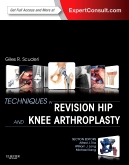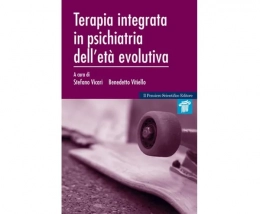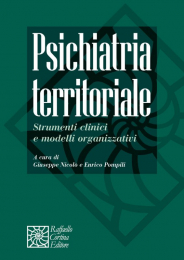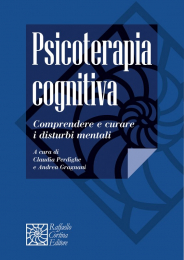Non ci sono recensioni
Description
Techniques in Revision Hip and Knee Arthroplasty is the one authoritative volume that gives you an efficient, problem-based approach to revision arthroplasty of both the hip and knee. Dr. Giles Scuderi and other leading experts from North America and Western Europe present their favored surgical procedures and post-surgical management strategies in this straightforward, heavily illustrated, video-intensive reference. It’s your one-stop, go-to guide for successful revision surgery for a myriad of complications, such as implant loosening, polyethylene wear, osteolysis, or infection of the hip and knee.
Table of Contents:
Section 1: Evaluation of the Painful Total Knee Arthroplasty
1. The Economics of Total Knee Arthroplasty
2. History and Physical Examination for the Painful Total Knee Arthroplasty
3. Aspiration and Serology Tests
4. Imaging in the Failed Total Knee Arthroplasty
5. An Algorithmic Approach to the Painful Total Knee Arthroplasty
Section 2: Surgical Approaches
6. Medial Arthrotomy
7. Quadriceps Snip
8. V-Y Quadriceps Turndown
9. Tibial Tubercle Osteotomy
10. Exposure for Revision Knee Arthroplasty
Section 3: Implant Removal
11. Implant Removal
Section 4: Principles of Revision TKA
12. Principles of Revision Total Knee Arthroplasty
13. Revising the Failed Unicompartmental Knee Arthroplasty
Section 5: Management of the Stiff Knee
14. Manipulation
15. Nonrevision Surgery
16. Revision Total Knee Arthroplasty
Section 6: Management of Instability
17. Balancing the Gaps
18. Use of Constrained Implants
19. Management of Knee Instabililty: Use of Hinged Implants
Section 7: Management of Bone Defects
20. Classification of Bone Defects
21. Management of Bone Defects Using Bone Graft
22. Bone Graft
22A - Impaction Bone Graft
22B - Structural Bone Graft
23. Prosthetic Augmentation
23A - Metaphyseal Fixation
23B - Case Presentation: Knee Megaprosthesis
Section 8: Management of the Extensor Mechanism
24. Patella Instability
25. Patella Component Loosening
26. Patellar Bone Loss
26A - Patellar Bone Grafting
26B - Management of Patellar Bone Loss: Patella Augmentation
27. Acute and Chronic Patellar Tendon Ruptures After Total Knee Arthroplasty
28. Acute and Chronic Quadriceps Tendon Ruptures After Total Knee Arthroplasty
Section 9: Management of Periprosthetic Fractures
29. Periprosthetic Fractures
29A - Classification of Periprosthetic Femur Fractures Occuring With Toal Knee Arthroplasty
29B - Classification of Periprosthetic Tibia Fractures Occuring With Toal Knee Arthroplasty
29C - Periprosthetic Fractures: Treatment Options After Total Knee Arthroplasty
30. Periprosthetic Fractures Associated With Toal Knee Arthoplasty
31. Classification and treatment of Patella Fractures
Section 10: Management of the Infected Total Knee Arthroplasty
32. Overview of the Microbiology
33. Two Stage Revision
33A - Articulating Spacer in Two-Stage Revisions
33B - Static Spacer in Two-Stage Revisions
34. Irrigation and Debridement With Component Retention for Actue Peroprosthetic Total Knee Arthoplasty Infections
35. One Stage Revision
Section 11: Wound Complications
36. Wound Management
37. Soft Tissue Coverage
Section 12: Preoperative Evaluation of the Failed Total Hip Arthroplasty
38. Evaluation of Failed Total Hip Arthroplasty: History and Physical Exam
39. Mechanisms of Failure: Indications for Revision Total Hip Arthroplasty
40. Magnetic Resonance Imaging of the Painful Total Hip Arthroplasty
41. Radiographic Evaluation of the Symptomatic Total Hip Arthroplasty
Section 13: Assessment of Bone Loss
42. Acetabular Bone Loss: Case Presentations
43. Acetabular Bone Loss Classification
44. Recommended Acetabular Reconstruction Options
45. Surgical Techniques: Socket Removal
Section 14: Femoral Bone Loss
46. Femoral Bone Loss
47. Femoral Component Removal
48. Femoral Reconstruction Options In Revision Hip Arthroplasty
Section 15: Surgical Approaches
49. Posterolateral Approach to the Hip
50. Direct Lateral Approach to the Hip
51. Direct Anterior Approach to Revision Total Hip Arthroplasty
52. Extended Trochanteric Osteotomy for Femoral Revision
53. Exposure for Revision Total Hip Arthroplasty
Section 16: The Acetabulum
54. Management of Cavitary Defects
55. Management of Segmental and Column Defects
56. Management of Protrusio Defects
57. Landmarks to Determine Anatomic Hip Center of Rotation
58. Acetabular Reconstruction With a Jumbo Socket
59. Acetabular Reconstruction
59A - Options for Acetabular Revision
59B - Surgical Techniques: Metal Augments
Section 17: Revision of the Femur
60. Cemented Femoral Revision in Total Hip Arthroplasty
Section 18: Modular Cementless Fixation
61. Femoral Revision Arthroplasty With a Modular Cementless Prothesis
62. Proximal Porous Coated Modular Stems: Surgical Technique
Section 19: Mangement of Femoral Bone Loss in Revision Total Hip Arthroplasty
63. Case Presentations: Extensively Porous-Coated, Cylindrical Stems
64. Surgical Techniques: Extensively Porous-Coated, Cylindrical Stems
65. Modular, Fluted, Tapered, Grit-Blasted Titanium Stems for Femoral Revision
66. Megaprosthesis of the Hip
Section 20: Special Considerations
67. Conversion of Prior Surgery to Total Hip Arthroplsty
68. Instability After Toal Hip Arthroplasty
69. Management of Wear and Osteolysis
70. Management of Thigh Pain in Cementless Arthroplasty
71. Periprosthetic Femur Fractures Associated with Total Hip Arthroplasty
72. Revision Arthroplasty for Periprosthetic Femoral Fractures
73. Revision of Articular Bearing Complications
73A - Revisions of Metal-on-Metal Bearing Surfaces in Hip Arthroplasty
73B - Ceramic-Ceramic Bearing Surfaces
Section 21: Management of the Infected Total Hip Arthroplasty
74. History and Diagnostic Testing
75. One-Stage Revision Total Hip Arthroplasty
76. Two-Stage Revision Total Hip Arthroplasty




